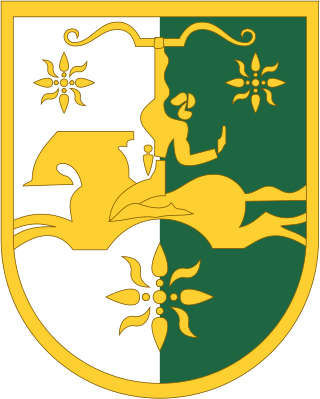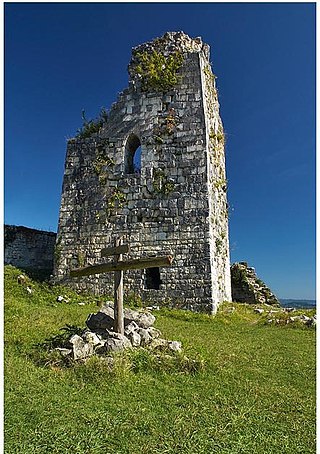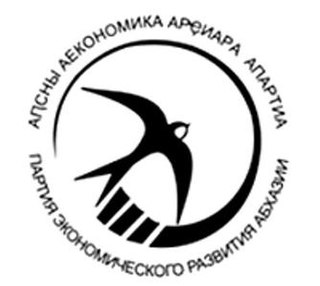
Raul Jumkovich Khajimba is an Abkhazian politician, and served as President of Abkhazia from 25 September 2014 until 12 January 2020. He was also Chairman of the Forum for the National Unity of Abkhazia from 2010 to 2015. Khajimba previously held the offices of Vice President (2005–2009), Prime Minister (2003–2004) and Defence Minister (2002–2003). He unsuccessfully ran for president in 2004, 2009 and 2011. He resigned the presidency in 2020 due to protests against him.
Sergei Shamba is a senior politician from Abkhazia. He is currently a member of the People's Assembly of Abkhazia and Chairman of United Abkhazia. He was Prime Minister of Abkhazia under President Sergei Bagapsh from 13 February 2010 until 27 September 2011. Between 1997 and 2010 he had been Minister for Foreign Affairs under both Bagapsh and his predecessor Vladislav Ardzinba, with only a half-year interruption in 2004. Shamba has twice unsuccessfully participated in presidential elections, in 2004 and 2011. He has been a staunch proponent for dialogue between Abkhazia and Georgia.

Aleksandr Zolotinskovich Ankvab is an Abkhaz politician and businessman who was the president of Abkhazia from 29 May 2011 until his resignation on 1 June 2014. He previously served as prime minister from 2005 to 2010 and as vice-president from 2010 to 2011 during the presidency of Sergei Bagapsh. He was appointed prime minister again on 23 April 2020.

Parliamentary elections were held in Abkhazia on 4 March 2007, with a second round in seventeen constituencies on 18 March.

Gudauta District is a district of Abkhazia, Georgia's breakaway republic. It corresponds to the eponymous Georgian district. Its capital is Gudauta, the town by the same name. The population of the district was 34,869 at the time of the 2003 census, down from 57,334 in 1989. By the time of the 2011 Census, the population had increased to 36,775.

Gulripshi District is a district of Abkhazia, one of Georgia’s breakaway republics. It corresponds to the eponymous Georgian district. Its capital is Gulripshi, the town by the same name. Until the August 2008 Battle of the Kodori Valley, the north-eastern part of Gulripshi district was part of Upper Abkhazia, the corner of Abkhazia controlled by Georgia until the Battle of the Kodori Valley during the August 2008 South Ossetia War. Upper Abkhazia was home to 1,956 of the district's 19,918 inhabitants, most of whom were ethnic Svans. Most of these fled before the battle and have not yet returned.

Presidential elections were held in Abkhazia on 3 October 2004, the first that were competitive. Election law prohibited incumbent President Vladislav Ardzinba from running for a third term and he instead backed Prime Minister Raul Khadjimba, who also enjoyed support from the Russian authorities. Khadjimba's main opponent was Sergei Bagapsh, who was supported by the two major opposition parties, United Abkhazia and Amtsakhara, and later also by Aitaira when their candidate Alexander Ankvab was barred from running in a controversial decision by the Central Election Commission.

Presidential elections were held in Abkhazia on 12 December 2009, the fourth such elections since the post of President of the Autonomous Republic of Abkhazia was created in 1994. The result was a victory for incumbent president Sergei Bagapsh, who received 63% of the vote, winning a second term in office. Bagapsh competed against four opposition candidates: former vice president and prime minister Raul Khajimba, who came second behind Bagapsh in the 2004 presidential election, and newcomers Beslan Butba, Zaur Ardzinba and Vitali Bganba. Khajimba had stated that he, Ardzinba and Butba would support each other should one of them reach the second round of the election. Bagapsh was inaugurated on 12 February 2010.

The Party for the Economic Development of Abkhazia is an opposition party in Abkhazia led by businessman Beslan Butba.

On 12 February 2011, Abkhazia held local elections for the 5th convocations of its local assemblies.

The Government of President Vladislav Ardzinba was the first Government of the Republic of Abkhazia.

Presidential elections were held in Abkhazia on 26 August 2011. This was the fifth such election since the post of President of the Republic of Abkhazia was created in 1994. The election was held to elect the successor of president Sergei Bagapsh who died in office on 29 May 2011.

Parliamentary elections were held in Abkhazia on 10 March 2012, with a second round on 24 March. Voters elected the fifth convocation of the People's Assembly.
The 3rd convocation of the People's Assembly of Abkhazia was in place from 2002 until 2007.
The 5th convocation of the Sukhumi City Council has been in office since 10 March 2011.
The 5th convocation of the People's Assembly of Abkhazia took office following the 2012 elections on 3 April 2012 and was replaced by the 6th convocation following the 2017 elections.
Zaur Ardzinba was a businessman from Abkhazia who unsuccessfully ran for President in the 2009 election.

On 3 April 2016, Abkhazia held local elections for the 6th convocations of its local assemblies in all districts except Gali.
On 13 March 2004, Abkhazia held local elections for the 3rd convocations of its local assemblies, coinciding with early voting for the Russian presidential election of the following day. On 18 February, the People's Assembly rejected a proposal by President Vladislav Ardzinba to postpone the elections to coincide with the October 2004 presidential election, because all the necessary preparations had already been made.

Parliamentary elections were held in Abkhazia on 12 March 2022, with a second round taking place on 26 March.








